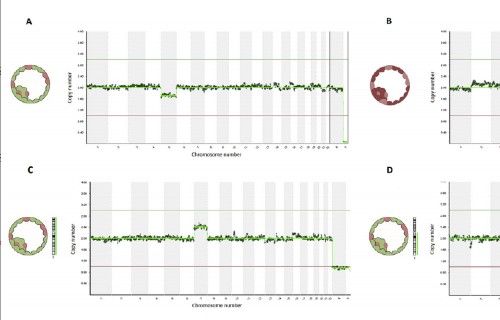
A retrospective study carried out by researchers from the Dexeus MujerReproductive Medicine Service, specialized in preimplantation genetic diagnosis and led by researcher Lluc Coll, has analysed what factors can influence the presence of mosaicism in preimplantation embryos.
The work was carried out from a total of 482 IVF cycles performed between October 2017 and October 2019 and intrinsic and extrinsic factors potentially associated with the prevalence of mosaicism were studied, such as maternal and paternal age, antral follicle count, the cumulus-oocyte complexes recovered, the body mass index of the woman, the indication of PGT-A, the concentration of sperm, the total dose of gonadotropins, the quality of the embryo and the day of blastocyst formation, the use of two different commercial culture media, and the biopsy operator.
The prevalence of mosaicism was 13.9%. According to the authors, the results suggest notable differences in the mechanisms that generate segmental mosaicism and that of the whole chromosome, indicating that they may deserve different consideration when studying them and prioritizing their transfer. Likewise, the male factor and specifically the paternal age seem to be an intrinsic factor associated with mosaicism, which is why they suggest that a specific evaluation of this element should be carried out in future studies.
Reference study:
Prevalence, types and possible factors influencing mosaicism in IVF blastocysts: results from a single setting
Lluc Coll, Mònica Parriego, Sílvia Mateo, Sílvia García-Monclús, Ignacio Rodríguez, Montserrat Boada, B.Coroleu, N P Polyzos, F Vidal, A Veiga.
Reprod Biomed Online 2021 Jan;42(1):55-65. doi: 10.1016/j.rbmo.2020.09.025.